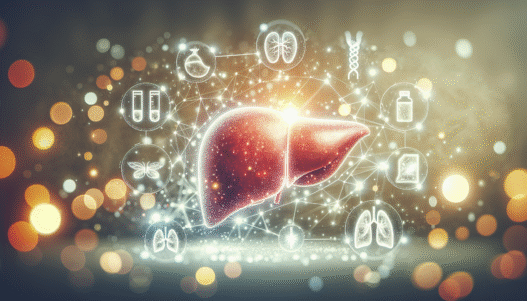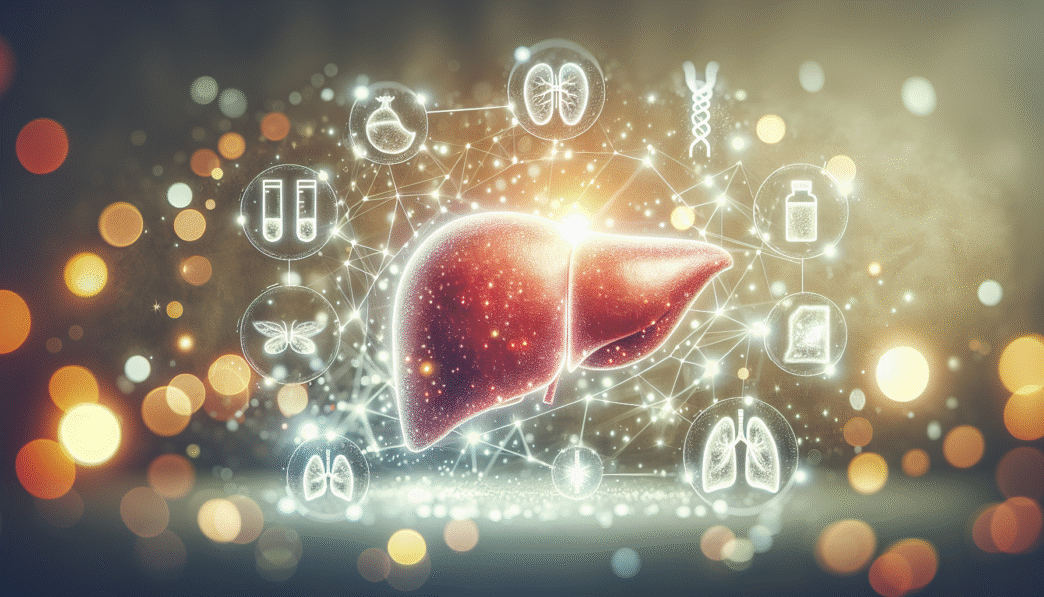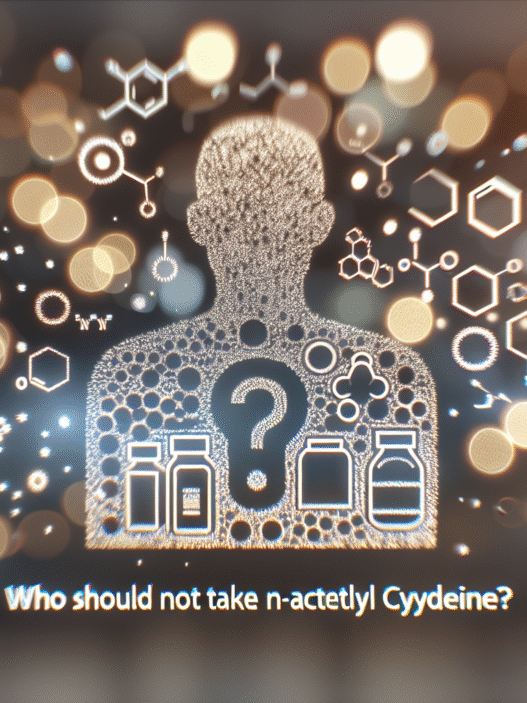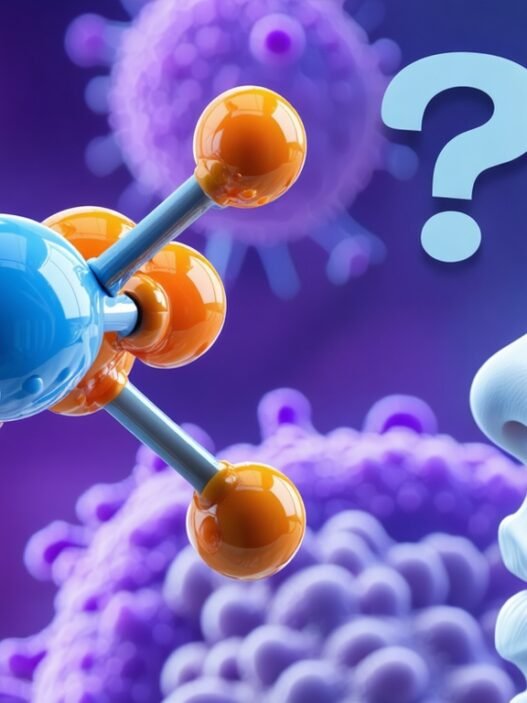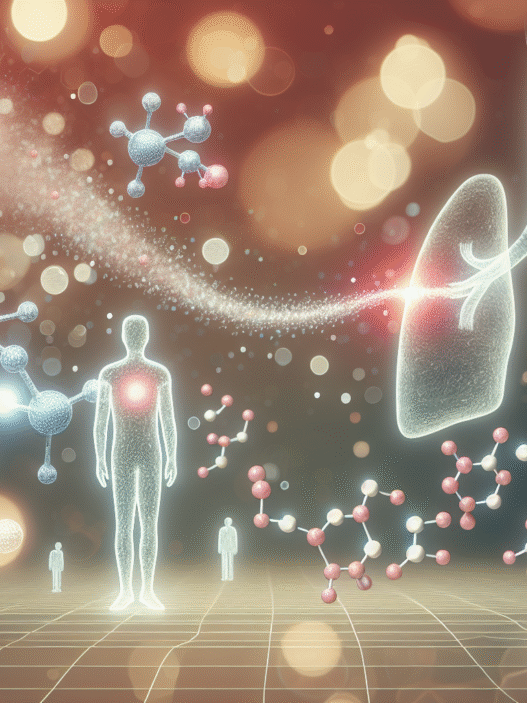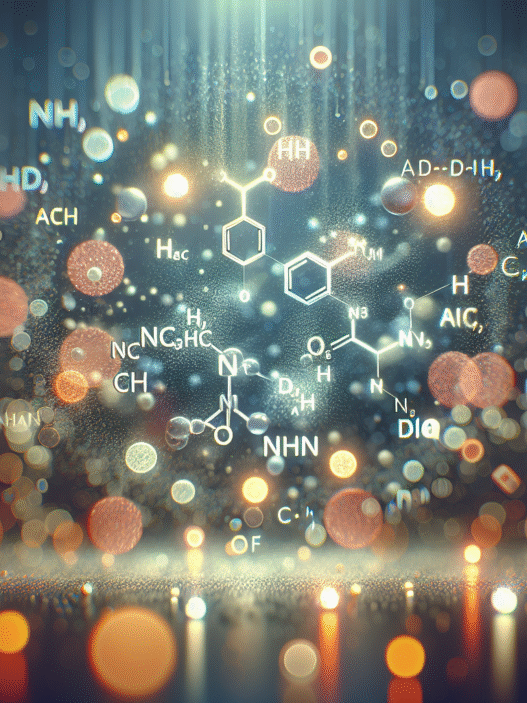NAC and Liver Health
N-Acetyl Cysteine (NAC) has gained popularity for its potential benefits on liver health. This section will explore how NAC positively influences liver function and its role in treating liver diseases.
NAC Benefits for Liver Function
NAC plays a vital role in detoxification processes, which can help prevent or diminish damage to the liver and kidneys. It is often used by medical professionals in cases of acetaminophen overdose to reduce liver damage. The antioxidant and anti-inflammatory properties of NAC contribute to its effectiveness in treating various liver diseases. Healthline highlights the following benefits of NAC for liver function:
- Detoxification: NAC helps facilitate the breakdown protocols of drugs and toxins, aiding in the overall detoxification process.
- Kidney and Liver Function Improvement: It may enhance liver and kidney functionality by expediting the breakdown of harmful substances in individuals suffering from relevant diseases.
Research suggests that further studies are necessary to fully validate these effects WebMD.
| Benefit | Description |
|---|---|
| Detoxification | Prevents damage caused by drugs and toxins |
| Organ Function Improvement | May enhance liver and kidney operations |
NAC in Treating Liver Disease
NAC is recognized for its scientifically supported role in treating acetaminophen overdose, which is critical for reducing the risk of liver damage. When absorbed, NAC boosts glutathione levels, which is key for detoxification WebMD.
- Acetaminophen Overdose: The timely administration of NAC can lead to effective breakdown of acetaminophen, potentially preventing severe liver or kidney damage if given within the first eight to ten hours post-overdose. This protocol is crucial for treating acute poisoning effectively and safeguarding the liver from further harm.
In summary, NAC has promising applications in improving liver health and treating liver-related diseases, particularly in emergency overdose situations. For comprehensive insights on NAC, you can check our article on what is NAC N-acetyl cysteine used for?.
NAC and Mental Health
N-Acetyl Cysteine (NAC) has garnered attention for its potential benefits in various aspects of mental health and wellbeing. It may play a crucial role in improving mental health conditions and assisting individuals battling substance use disorders.
Impact of NAC on Mental Health Conditions
Research indicates that NAC may improve mental health conditions by regulating glutamate levels in the brain, a neurotransmitter associated with mood and behavior. It has shown promise in helping decrease symptoms and improve the quality of life for individuals with bipolar disorder, depression, and moderate to severe obsessive-compulsive disorder (OCD).
A summary of key findings from studies on NAC’s impact on mental health conditions is presented in the following table:
| Condition | Potential Benefits of NAC |
|---|---|
| Bipolar Disorder | Decrease in symptoms and stabilization |
| Depression | Improvement in mood and quality of life |
| Obsessive-Compulsive Disorder | Alleviation of OCD symptoms |
| Schizophrenia | Aiding in the management of symptoms |
NAC’s ability to regulate glutamate levels and its potential antioxidant properties make it an interesting area of study for mental health advancements.
NAC for Substance Use Disorders
NAC has also shown potential in addressing substance use disorders. Preliminary studies suggest that it might decrease cravings and usage of substances such as cannabis and nicotine. By modulating neurotransmitter levels in the brain, NAC may help ease the symptoms of withdrawal.
Additionally, NAC’s role in mental health extends to aiding those struggling with various addictions and supporting recovery processes. Research continues to explore the extent of NAC’s effectiveness in treating substance use disorders, particularly in conjunction with traditional therapeutic approaches.
For more information on the applications of NAC, visit our article on what is NAC N-Acetyl Cysteine used for?.
By understanding the potential benefits of NAC on mental wellbeing and fighting substance use disorders, individuals may find new avenues for improving their overall health and wellness.
NAC and Respiratory Health
N-Acetyl Cysteine (NAC) offers several benefits for respiratory health, particularly in managing chronic respiratory conditions. This section will explore how NAC functions in treating respiratory issues and its role in enhancing lung function.
NAC for Respiratory Conditions
NAC has been shown to relieve symptoms of various respiratory conditions, including chronic obstructive pulmonary disease (COPD) and chronic bronchitis. It acts as both an antioxidant and an expectorant, which helps improve lung function by reducing inflammation and breaking up mucus within the air passageways. This makes breathing easier for individuals with such conditions (Healthline).
Research indicates that high-dose NAC (up to 1,200 milligrams per day) may be particularly effective in lowering inflammation and breaking up biofilms where respiratory pathogens can reside. This can significantly aid individuals suffering from cystic fibrosis, whether used alone or in conjunction with other medications (WebMD).
| Respiratory Condition | NAC Benefits |
|---|---|
| Chronic Obstructive Pulmonary Disease (COPD) | Reduces inflammation, improves lung function |
| Chronic Bronchitis | Breaks up mucus, enhances breathing |
| Cystic Fibrosis | Lowers inflammation, helps clear mucus |
NAC’s Role in Lung Function
NAC contributes positively to lung function by acting as an antioxidant that combats oxidative stress, which is often elevated in individuals with respiratory diseases. By reducing oxidative damage in lung tissues, NAC aids in maintaining optimal lung health. Furthermore, it plays a key role in improving mucus clearance, which is crucial for respiratory function.
Studies suggest that by effectively reducing mucus viscosity and promoting its expulsion, NAC can enhance lung function, making it easier for individuals to breathe. It also provides symptomatic relief for people with chronic respiratory conditions, thus improving their overall quality of life.
Individuals looking into the benefits of NAC for their respiratory health should consider it as a supplementary option alongside professional medical advice. For more information on the uses and advantages of NAC, visit our article on what is nac n-acetyl cysteine used for?.
NAC and Brain Health
NAC for Neurological Conditions
N-acetylcysteine (NAC) has garnered attention for its potential benefits on brain health. By helping replenish the antioxidant glutathione and regulating glutamate levels, NAC may assist in treating various neurological conditions. Research indicates that NAC could play a role in managing cognitive decline associated with diseases like Alzheimer’s and Parkinson’s. Glutathione is essential for protecting neurons from oxidative stress, which can damage brain cells over time (Healthline).
The following table summarizes some of the neuroprotective properties of NAC:
| Condition | Potential Benefits of NAC |
|---|---|
| Alzheimer’s Disease | May slow cognitive decline and improve memory functions |
| Parkinson’s Disease | Could help alleviate symptoms and neurodegeneration |
| General Neurological Health | Provides antioxidant support to protect brain cells |
NAC in Alzheimer’s and Parkinson’s Disease
In the context of specific neurodegenerative diseases, NAC shows promise in Alzheimer’s and Parkinson’s disease management. For Alzheimer’s, its ability to enhance glutathione levels helps combat oxidative stress, a key factor in the progression of the disease. Studies suggest that antioxidant therapies may result in improved cognitive functions and help slow the decline in patients with Alzheimer’s (Healthline).
Similarly, for Parkinson’s disease, NAC’s neuroprotective effects may contribute to better management of symptoms related to motor function. It may help regulate neurotransmitters, offering potential benefits for maintaining motor control in individuals affected by the disease.
This evidence supports the hypothesis that NAC can be an important supplementary treatment for individuals concerned about cognitive decline or looking to enhance their overall brain health. For more comprehensive information on NAC’s benefits, visit our article on what is nac n-acetyl cysteine used for?.
NAC and Heart Health
N-Acetyl Cysteine (NAC) is gaining attention for its potential benefits in heart health. Research indicates that it may play a role in reducing heart disease risk and enhancing overall heart function.
NAC’s Impact on Heart Disease Risk
NAC may help decrease heart disease risk by preventing oxidative damage in heart tissue. Oxidative stress is a significant contributor to heart disease, and NAC’s antioxidant properties can mitigate this damage. Studies suggest that NAC can protect heart function in individuals with diabetes and those recovering from certain heart surgeries.
| Study Focus | Findings |
|---|---|
| Diabetes and Heart Function | NAC may protect heart health by reducing oxidative damage. |
| Post-Heart Surgery | NAC shown to have positive outcomes in recovery following heart surgery (Journal of Thoracic and Cardiovascular Surgery). |
NAC has also demonstrated potential as an adjunctive treatment for individuals undergoing coronary artery bypass surgery, highlighting its beneficial effects on cardiac recovery.
NAC for Heart Function
NAC not only protects against oxidative stress but also improves heart function. For individuals at risk of heart disease, it serves as a supportive agent. Research indicates that NAC can enhance the body’s response to treatments, thereby promoting better cardiovascular health (PMC).
Additionally, NAC has shown preventive effects against acute kidney injury following cardiac surgery, further illustrating its supportive role in heart-related medical interventions.
In summary, taking NAC may offer both protective and functional benefits for heart health, making it a consideration for those concerned about their cardiovascular well-being. For more information on NAC and its various uses, check out our article on what is NAC N-acetyl cysteine used for?.
Considerations and Dosage
When considering N-Acetyl Cysteine (NAC) for liver health and other benefits, understanding dosage guidelines and potential side effects is crucial for safe and effective use.
NAC Dosage Guidelines
NAC can be administered in various forms, including orally, intravenously, or by inhalation. The bioavailability of free NAC is very low when taken orally, often less than 10%. Intravenous administration, on the other hand, allows for rapid delivery of high concentrations, particularly beneficial in acute scenarios, such as paracetamol overdose.
| Administration Method | Bioavailability | Peak Plasma Concentration Time |
|---|---|---|
| Oral | <10% | 1-2 hours |
| Intravenous | High | Immediate |
In patients with severe liver injury, such as those with cirrhosis or end-stage renal disease, NAC pharmacokinetics change due to decreased clearance, leading to higher systemic exposure (PMC). Dosage may be adjusted accordingly in these contexts.
Typical dosage guidelines may vary based on condition:
- General use: 600-1200 mg per day, split into two or three doses.
- Acute conditions (e.g., paracetamol overdose): Higher doses through intravenous routes may be provided under medical supervision.
For further considerations on appropriate zinc dosages, you may consider referring to our article on how much NAC for liver repair?.
Potential Side Effects of NAC
NAC is generally well-tolerated, especially when delivered intravenously, where minimal side effects occur. However, it can be associated with some gastrointestinal symptoms, including nausea and vomiting. The proportion of adverse effects is typically greater with intravenous administration compared to oral intake.
Here is a summary of common side effects:
| Side Effect | Likelihood |
|---|---|
| Nausea | Common |
| Vomiting | Common |
| Abdominal discomfort | Less common |
| Allergic reactions | Rare |
Individuals considering NAC should also be aware of possible interactions with other medications or underlying health conditions. For instance, consulting healthcare providers is advised if there are concerns about potential side effects or if one is taking other supplements or medications.
For additional questions on how NAC interacts or affects health, explore articles such as who should not take N-Acetyl Cysteine? and what are the negative side effects of NAC?.
Understanding the nuances of NAC can empower individuals to make informed decisions regarding its use for liver health and beyond.










